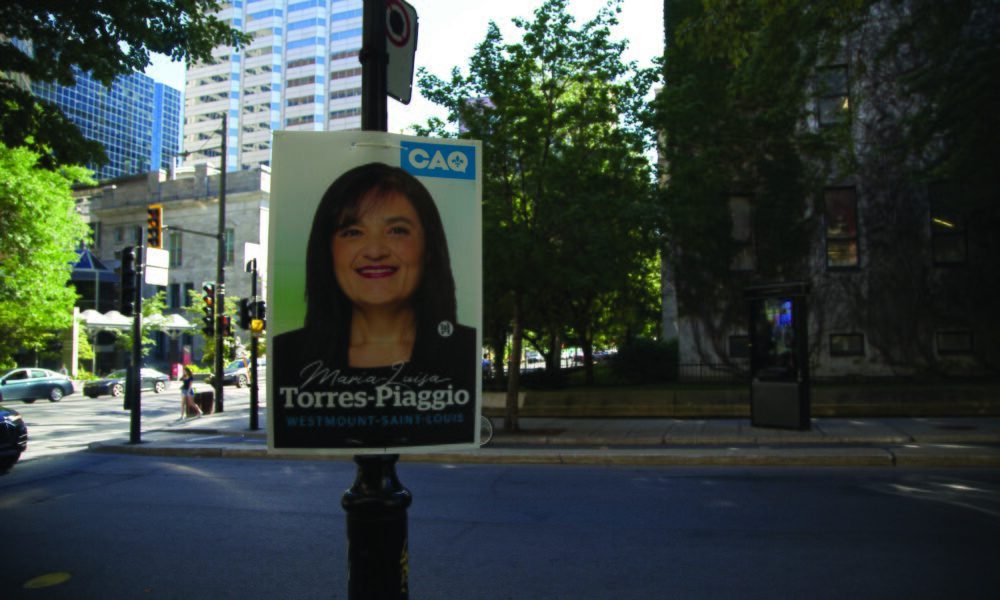The Quebec provincial election campaign has officially kicked off and, as election day approaches on Oct. 3, voters have much to consider after a tumultuous four years.
This fall, immigration is top of mind. Businesses want more immigrants to relieve the province’s major labour shortages, Bill 96 has stirred intense debate over cultural integration, and there has been rising tension with the federal government as Quebec seeks more autonomy over immigration to the province. Premier Legault’s Coalition Avenir Quebec (CAQ) has maintained a nefariously conservative stance on immigration. But, voters should know that the CAQ’s immigration policies are both hypocritical and exploitative.
With Legault taking credit for Quebec’s falling deficits and post-COVID economic growth, the CAQ is projected to add even more seats to its majority. Indeed, it has always branded itself as the productive Quebec party focused on economic advancement instead of old questions about separating from Canada. The CAQ has repeatedly defended its decision to cap immigration at 50,000 these last four years, citing the province’s limited capacity for integrating newcomers. Legault has framed high immigration as a cultural and economic threat to French Quebec, but reports reveal that without immigrants’ economic contributions, the province’s output would be nine per cent less in 2021 alone.
As for other major parties, only the Quebec Liberals have pledged to increase annual immigration to a base of 70,000, and to engage with different regions of the province about how many immigrants they would welcome. The Conservatives want to further decrease immigration with a hand-wavy plan to increase automation and the province’s birthrate to fill labour vacancies instead. Meanwhile, the Parti Québécois is calling for “objective” analysis and less polarization on the issue, despite itself helping to fuel the narrative of a cultural-linguistic threat.
The CAQ wants voters to consider the thriving economy and restrictive immigration policies together, and to conclude that Quebec does not need immigrants. On the surface, it appears that the party’s new nationalist brand is effective and sustainable, further strengthening its record against the opposition parties.
Unfortunately for the CAQ, however, this is a manufactured political illusion. For one, Legault’s “thriving” economy ignores the elephant in the room—an urgent labour shortage across the board that leaves hospitals short-staffed, impedes technological development, and makes matters worse for struggling small businesses. Representative associations of several critical industries continue to plead to the CAQ government to increase and facilitate immigration, to no avail Among them are the Chamber of Commerce of Metropolitan Montreal and the Quebec Manufacturers and Exporters organization, the latter calling for parties to increase the annual immigration threshold to 90,000 if elected.
Further, the recent make-up of immigration in Quebec reveals that the CAQ’s policy exploits immigrants’ labour by favouring temporary work permits over granting permanent status. A recent study by the Institut du Québec found that temporary immigrants’ share of total international immigration to the province increased nearly seven-fold from 2016 to 2019—from nine per cent to 64 per cent. These temporary workers are not treated the same as full-status immigrants. They tend to face poorer wages and substandard working conditions, less awareness and enforcement of their labour rights, and extremely long and uncertain wait times for permanent status applications. Many are not adequately considered in long-term government decisions about housing, education, healthcare, or public transit.
In other words, the CAQ caps immigration and frames it as a cultural issue on the campaign trail, only to quietly optimize the economic return on its low quotas through a surge in temporary immigrant work. Considering the status implications and systemic barriers faced by these workers in both society and the workplace, Quebec under the CAQ has no intention of “culturally integrating” the majority of its immigrants.
This fall, voters should consider that immigration is becoming more of a political and economic issue than a cultural one, and they should question the ruling party’s stakes in framing it this way. The CAQ’s hypocrisy undermines its proclaimed Quebec-first ideology and suggests that the party is, indeed, no different than its supposedly unproductive counterparts.









